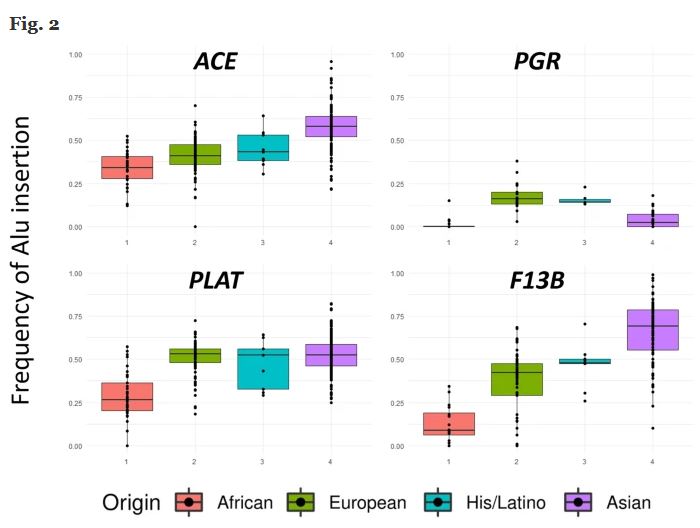Using Alu Retrotransposons to predict patient-specific treatment strategies for COVID-19
January 25, 2021

Manci Li, CMB Graduate Student and researcher working in the laboratory of VBS Assistant Professor Peter Larsen recently collaborated with Dr. Luca Schifanella (Dept of Surgery UMN Medical School; manager of the UMN COVID-19 biorepository) to investigate how retrotransposons influence host immune response to SARS-CoV-2. The paper, "Alu retratransponsons and COVID-19 susceptibility and morbidity," was published in Human Genomics, BMC Springer Nature, January 4, 2021 issue.
"Alu retrotransposons are primate-specific transposable elements that amplify in the genome through an RNA intermediate. These ~300 bp long mobile genetic elements compose over 10% of the human genome. Alu elements have been extremely helpful in elucidating primate evolution and demography, especially with respect to human genetic ancestry and migration patterns. Along the same line, numerous Alu elements are associated with SNPs that are linked to human diseases and physiological traits, including COVID-19."
This scientific paper reviews specific Alu polymorphisms that are of particular interest when considering host response to SARS-CoV-2 infection, especially polymorphic Alu insertions in genes associated with immune response and coagulation/fibrinolysis cascade. The research team assesses that additional research focused on Alu-related pathways could yield novel biomarkers capable of predicting clinical outcomes as well as patient-specific treatment strategies for COVID-19 and related infectious diseases.
This review manuscript is the basis for ongoing molecular work in the Larsen lab, conducted in collaboration with the UMN Medical School COVID-19 biorepository team and funded by med school rapid response grant.